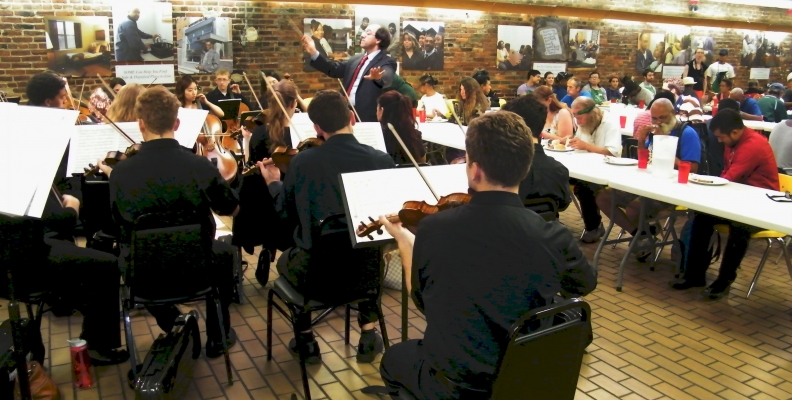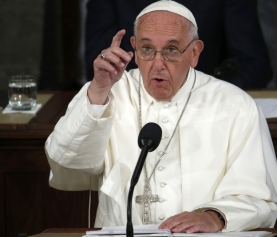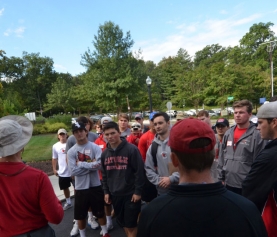
Linda Plitt Donaldson: Working Our Way out of Poverty
The month of September always includes two closely related events to which people who are interested in addressing poverty pay careful attention. The first event is Labor Day, our national holiday to celebrate the social and economic achievements of American workers. The second event is the Census Bureau release of the federal poverty data from the previous year.
This year, the census data show that despite reported economic growth, the poverty rate (14.8%) remains unchanged from 2013. Of the 46.7 million Americans who remain in poverty, 15 million are children (more than one in five). Poverty continues to have a disproportionate impact on people of color with African American and Latino poverty at 26.3% and 23.6% respectively. (It is important to remember that the federal poverty level for a family of four is $24,250, and very few of us know families of four who can live on $24,250 a year.).
Many of these families work. The Bureau of Labor Statistics reported that 10.5 million Americans are among the working poor. And most of the income from these families comes from low-wage work, e.g., cleaning, fast food, retail, home health care, and so on. It’s not just the wages of these jobs that keep working families in poverty. Many of these jobs offer no guarantee of minimum hours, expect 24/7 availability, have unpredictable schedules (e.g., less than a week’s notice about a shift), and have a growing reliance on ‘on call’ shifts. The scheduling issues associated with low-wage work make it very difficult for families with children to participate in the labor force because of the need to arrange regular child care. In addition, many low-wage workers have no paid sick days, and many of them work in conditions that actually make them sick. Workers are afraid of calling in sick or attending to child care emergencies for fear of being fired or having their hours reduced. Rashaun Rodgers works two jobs at $8/hour and struggles to support his family, including a 4-year old son.
His story is similar to the families profiled in the new book by authors Kathryn J. Edin and H. Luke Shaefer, $2.00 a Day: Living on Almost Nothing in America. Edin and Shaefer introduce us to families who are poor, who have a deep desire to work, and who complete hundreds of job applications and accept low-wage jobs under terrible conditions. Yet they often lose these jobs because of the precarious conditions in which they live and the lack of understanding and accommodation by employers. Rae McCormick, a two-time cashier of the month, was fired because she had no means of getting to work after the family members with whom she shared a car drained her tank and did not tell her it was empty. Such stories told by Edin and Shaefer give evidence to the “economy of exclusion” noted by Pope Francis. The authors also document how the combined absence of a true safety net and of sufficient job opportunities has created the conditions for many families in America to be just surviving on $2 a day.
Since the beginning of modern Catholic social teaching with Rerum Novarum, Catholics have cared deeply about the dignity of work and the rights of workers. Pope John Paul II wrote an entire encyclical on work called Laborem Excercens, declaring work the center of the “social question” and noting that work is a “fundamental dimension of human existence.” Work is how we participate in God’s creation, in addition to providing for our families and giving us the means to participate in various spheres of life (family, community political, and economic). Pope Francis observes that work “expresses the dignity of being created in the image of God” and that “work is sacred.” He also acknowledges that dignity through work is “‘under threat by a cult of money which leaves many people without work.” Maximizing profit contributes to the unpredictable schedules and anemic benefits tied to low wage work.
The Community Advocates Public Policy Institute offers some examples of policy solutions that bring meaningful work opportunities to people who are poor. People who are poor want to work. They are hard workers. They need opportunities to work in jobs with wages where they can support their families. They need opportunities to work in jobs that offer predictable schedules, predictable hours, and health benefits. They need work that reflects their dignity.
– Linda Plitt Donaldson is an associate professor at The Catholic University of America National Catholic School of Social Service.








